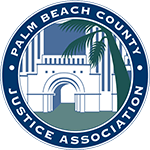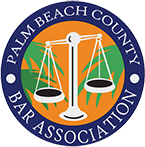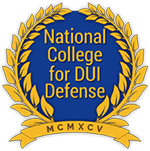A common question we're hearing from clients lately is: "I heard that they changed the boating laws in Florida. Does that mean I can't get a BUI anymore?" The short answer is no - you can absolutely still be charged with Boating Under the Influence (BUI) in Florida. However, the recent changes to Florida's boating laws have significantly altered when and how Fish and Wildlife officers can stop your vessel.
Starting July 1st, 2025, Senate Bill 1388, known as the Boaters Freedom Act, changed the landscape of marine law enforcement in Florida. While these changes don't eliminate BUI laws, they do provide important new protections for boaters against random stops. If you've been charged with BUI in Palm Beach County or Broward County under the new law, contact our experienced Florida BUI defense attorney immediately at (561) 671-5995 or schedule a consultation today.
Table of Contents
- What Changed on July 1st, 2025?
- How the Boaters Freedom Act Changed Marine Stops
- Valid Reasons Officers Can Still Stop Your Boat
- "What If I Only Had a Couple Beers?"
- Potential Defense Opportunities Under the New Law
- BUI Penalties in Florida Remain Unchanged
- What to Do if You're Charged with BUI in Florida
- Why You Need an Experienced Florida BUI Defense Attorney
- Contact an Experienced Palm Beach Criminal Defense Attorney
What Changed on July 1st, 2025?

Prior to July 1st, 2025, Florida Fish and Wildlife Conservation Commission (FWC) officers had broad authority to conduct what they called "random safety inspections." This meant they could stop and board your vessel without any specific reason to believe you had committed a violation. During these stops, officers would:
- Check your safety equipment
- Verify your boat registration
- Look for any signs of impairment or alcohol use
If during a random safety inspection an officer smelled alcohol or suspected impairment, that routine stop could quickly escalate into a BUI investigation and arrest.
How the Boaters Freedom Act Changed Marine Stops
Under Senate Bill 1388, FWC officers now need reasonable suspicion or probable cause to stop your vessel - similar to how police officers must have a reason to pull you over in a DUI case. This means officers can no longer conduct purely random safety inspections without some underlying justification.
However, it's crucial to understand that this change doesn't eliminate BUI laws or make it harder to be convicted of BUI if you're actually impaired while operating a vessel.
Valid Reasons Officers Can Still Stop Your Boat
Even under the new law, FWC officers can still stop your vessel for numerous legitimate reasons, including:
- Moving violations: Speeding, reckless operation, or violating no-wake zones
- Equipment violations: Missing required safety equipment visible from outside the vessel
- Registration issues: Expired or improperly displayed registration numbers
- Environmental violations: Operating in restricted areas or wildlife protection zones
- Suspicious behavior: Erratic driving patterns that suggest impairment
- Safety concerns: Operating in dangerous conditions or manner
The reality is that if you're drinking and operating your vessel, you're likely still going to face the same consequences you would have before July 1st, 2025.
"What If I Only Had a Couple Beers?"
This is one of the most common questions we receive from clients facing BUI charges. The truth is that Florida's BUI laws are just as strict as DUI laws:
- Legal limit: 0.08% blood alcohol concentration (BAC) for adults 21 and over
- Enhanced penalties: 0.15% BAC or higher results in increased penalties
- Zero tolerance: Any measurable alcohol for boaters under 21
Even if you've only had "a couple beers," you could still be over the legal limit and face serious consequences. Additionally, Florida law allows for BUI charges even if your BAC is under 0.08% if the officer believes alcohol has impaired your normal faculties.
Potential Defense Opportunities Under the New Law
The Boaters Freedom Act does create new defense opportunities for those charged with BUI. If FWC officers stopped your vessel randomly without reasonable suspicion or probable cause after July 1st, 2025, your attorney may be able to file a motion to suppress evidence. This could potentially result in:
- Exclusion of breath or blood test results
- Dismissal of field sobriety test evidence
- Complete case dismissal in some circumstances
BUI Penalties in Florida Remain Unchanged
While the new law changed when officers can stop you, the penalties for BUI convictions remain the same:
First Offense BUI:
- Up to 6 months in jail
- Fines between $500-$1,000
- Mandatory boating safety course
- Possible vessel impoundment
Enhanced Penalties Apply for:
- BAC of 0.15% or higher
- BUI with minor passengers
- BUI causing property damage or injury
- Prior BUI convictions
What to Do if You're Charged with BUI in Florida
If you've been arrested for BUI in Palm Beach Gardens, West Palm Beach, Fort Lauderdale, or anywhere in South Florida, take these steps immediately:
- Exercise your right to remain silent - Don't discuss the case with anyone except your attorney
- Contact an experienced BUI defense attorney - The sooner you get legal representation, the better
- Preserve evidence - Write down everything you remember about the stop and arrest
- Don't miss court dates - Failure to appear can result in additional charges
Why You Need an Experienced Florida BUI Defense Attorney
BUI cases involve complex maritime law, constitutional issues, and scientific evidence. An experienced attorney can:
- Analyze whether the stop was legal under the new Boaters Freedom Act
- Challenge the accuracy of breath or blood tests
- Negotiate with prosecutors for reduced charges
- Protect your boating privileges and criminal record
Contact an Experienced Palm Beach Criminal Defense Attorney
If you or a loved one has been arrested for a BUI in West Palm Beach, Boca Raton, Delray Beach, Fort Lauderdale, or anywhere in Palm Beach or Broward Counties, contact us today for a consultation to discuss your case. We can help you understand your rights and develop a strategy to protect them.
Contact our firm for a consultation, 24/7 online or by phone. We are committed to guiding you through the complex legal process, offering personalized, compassionate legal representation every step of the way. Click the button above or give us a call at (561) 671-5995 today!
For more information about what to do next, download our free guide, “What to Do When a Loved One Is Arrested – A Helpful Guide”














